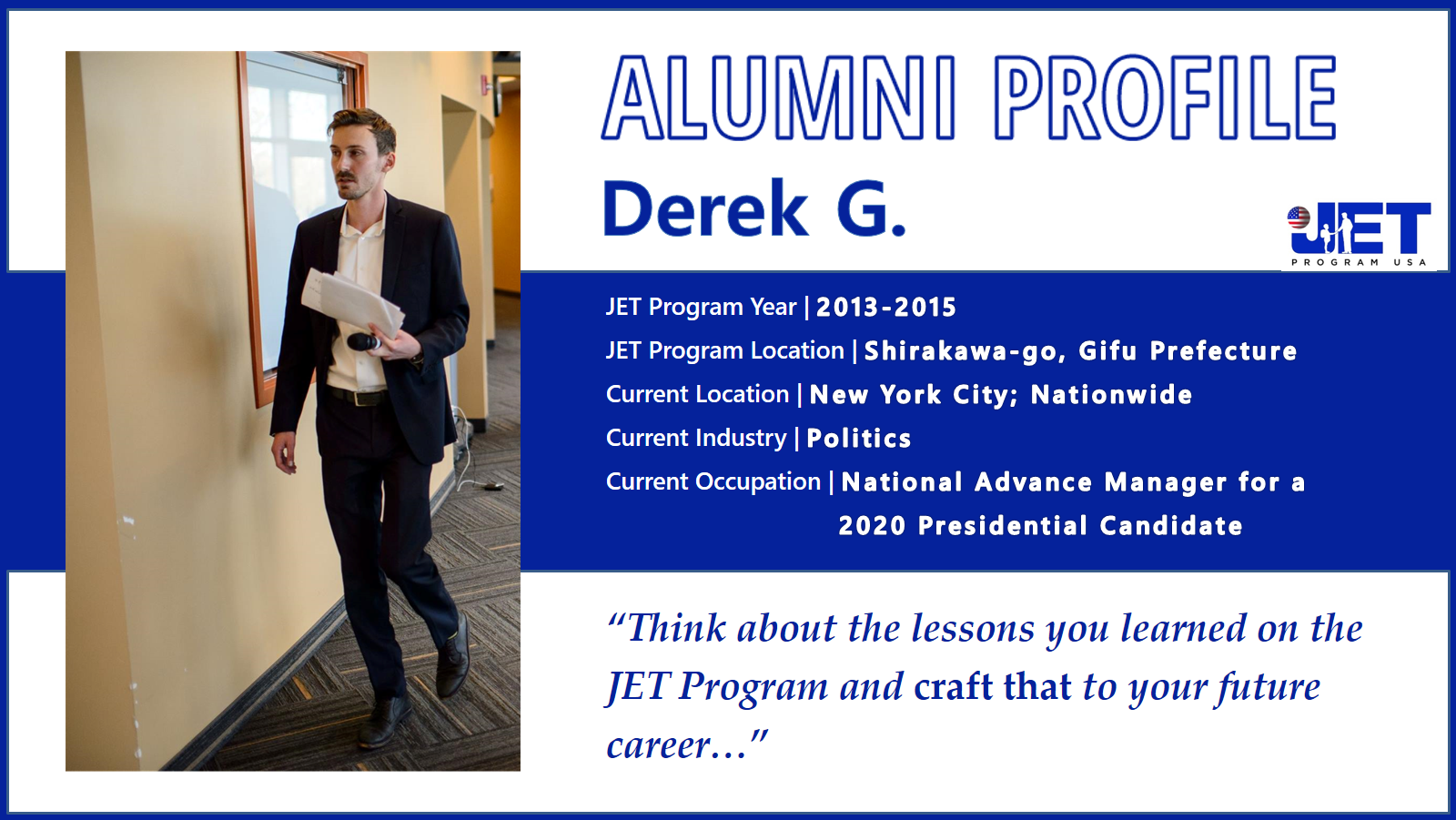
An interview with Derek, a Shirakawa village, Gifu prefecture JET Program alumni, who decided to pursue a career in politics after finishing the JET Program. He now works for a 2020 US presidential candidate as a National Advance Manager, part of the team that coordinates and plans logistics for a politician’s visits.
How did you come to work at your current position?
After JET, I applied for an internship at the White House and that was the beginning of my job experience in politics. I interned at the Scheduling and Advance Office at the White House, which deals with the schedule of the president as well as the “advance” aspect. Before politicians goes anywhere, (to give a speech, attend a rally, give a talk, etc.) the advance team goes ahead to coordinate. They essentially make sure that the politician’s appearance goes smoothly. I interned at the White House for 5 months and did advance for the president and vice president at the time. I then acquired my current position in 2015.
How did your JET Program experience prepare you for your current position?
I learned how to speak and communicate with people of different backgrounds. While on the JET Program, I learned and used Japanese, which helped me to learn other people’s viewpoints and perspectives. In my current job, I travel twice a week and talk to people with very different perspectives. Maybe some people don’t support the candidate I work for, but I still have to meet and talk with them in order to make sure the event goes smoothly. I have to understand their perspective to get the job done.
What is your most memorable JET Program experience?
There were many. I was in a village of 1,000 people — less than in my high school graduating class! Everyone in the town knew me, as I was the only foreigner. I taught every single child in the village. It made me feel a sense of responsibility but also a sense of belonging. People appreciated me and what I was doing. A lot of the kids don’t interact with any foreigners and have few opportunities to see non-Japanese people, so I was an example of what a foreigner was to them. I tried to showcase my country in the best light, and I tried to show the kids there were more opportunities for them out there. Being a part of that small, tight-knit community was a great opportunity for me.
What advice would you give to current and future JET Program Participants?
Think of your career in terms of a narrative and figure out how the JET Program fits into that narrative. You can take the JET Program and articulate it in so many ways afterwards for potential employers. Think about the lessons you learned on the JET Program and craft them to how they will fit into your future career goals. Try to have a plan. Have ideas of what to do after JET. For me, I knew I wanted to go into government and politics afterwards, so I applied to positions like that before I left Japan. So I would say be proactive and see what opportunities are out there, reach out to alumni to see what they’re doing and what things are out there you can do. Be proactive and look for opportunities that fit your own personal narrative.
